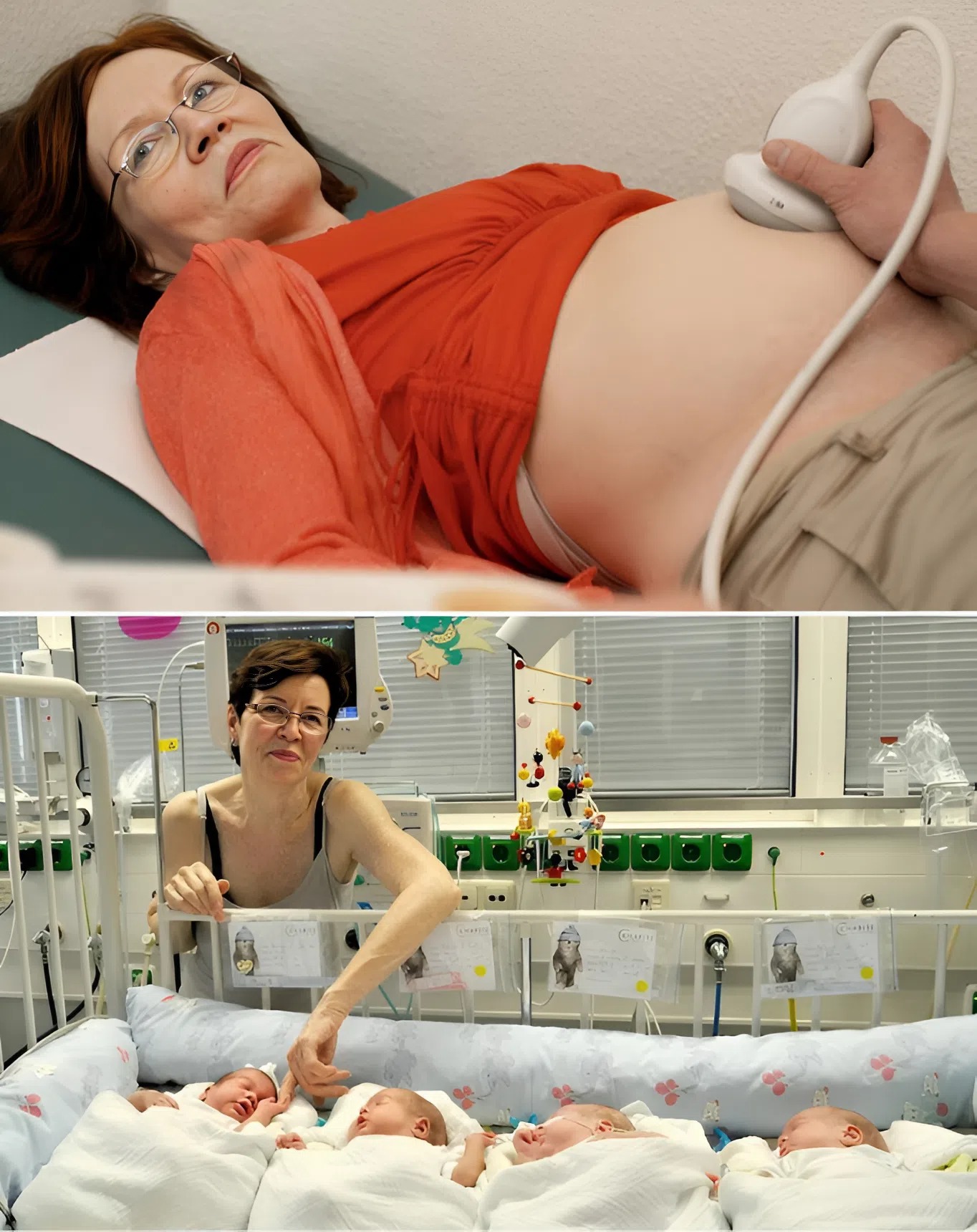Annegret Raunigk had always known that motherhood was her calling. Living in Berlin, she spent decades surrounded by children — not just her own, but also those she taught as a primary school teacher. Children were simply a part of her identity, woven into every stage of her life. By the time she turned 55, she had already given birth to 13 children and had even become a grandmother. For most people, that would have marked the beginning of a quieter chapter — retirement, rest, and perhaps time to reflect on a life well lived. And in fact, Annegret did retire in 2005. But peace and quiet? That was never really her style.
That same year, while most of her peers were planning vacations or gardening, Annegret made a decision that shocked many: she underwent artificial fertilization and gave birth to another child — a daughter. The news made waves across Germany. She became the country’s oldest mother at the time, and the media frenzy that followed was intense. Critics questioned her judgment. Headlines labeled her as reckless. Yet, Annegret remained unfazed. She never tried to justify her choices to anyone. She simply smiled and said, “I love children.”
Years went by. Her youngest daughter, the one born when Annegret was already in her late 50s, began to grow. As she approached ten years old, she came to her mother with a heartfelt wish — she wanted a sibling to grow up with. Annegret took the request seriously. She was 64 by then, and although most would consider motherhood at that age unimaginable, she felt physically strong, mentally prepared, and emotionally open to the idea. Her older children were also willing to lend a hand. So she decided to go for it one last time.
However, German regulations wouldn’t allow the procedure due to her age. Undeterred, Annegret traveled abroad to a clinic that agreed to help her. There, a donor egg was fertilized and implanted. What happened next stunned even the doctors. Not one, but four embryos implanted successfully. Annegret was pregnant — with quadruplets.
In 2015, at the age of 65, Annegret gave birth via cesarean section to three boys and one girl. The babies were born 15 weeks early, and each weighed less than a kilogram. The risks had been enormous, and many feared the worst. But to everyone’s amazement, all four survived. Slowly, week by week, they began to grow stronger. The neonatal ward became their first home, filled with wires, tiny incubators, and a team of dedicated nurses watching over them night and day.
Naturally, the controversy only grew. Critics once again called her selfish and irresponsible, arguing that it was unfair to bring children into the world at her age. They wondered how she would manage. Seventeen children in total — it sounded overwhelming. And Annegret never denied that it was hard. She openly admitted that there were days when she felt exhausted, when the demands of caring for four toddlers on top of everything else left her with no time to rest.
But she also spoke with joy and gratitude. The children, she said, brought light and energy into her life. She loved hearing their laughter in the house, seeing them take their first steps, hearing them call her “Mama.” Of course, things weren’t always easy. Raising four young children in her late 60s meant early mornings, sleepless nights, endless loads of laundry, and constant multitasking. But she also had help — her older children stepped in, and the family operated like a small village, each member playing a role.
Today, those four little babies are thriving, and Annegret, though often tired, remains proud of her decision. Her story may not fit into society’s usual expectations, but it’s one of determination, love, and defying limits. She reminds us that there is no single way to live a full life — and that sometimes, the heart doesn’t pay attention to the calendar.






